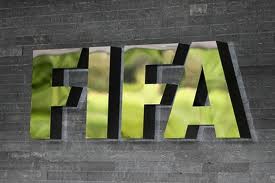By Andrew Warshaw
November 18 – Two whistleblowers who provided potentially incriminatory evidence to the FIFA World Cup anti-corruption probe are furious that their cover has been effectively blown and have both registered a formal complaint against FIFA ethics judge Hans Joachim Eckert.
Phaedra Al-Majid and Bonita Mersiades, who worked for the 2022 Qatar and Australian bids respectively but were both dismissed part-way through the campaign, say they have been betrayed by Eckert after having been promised confidentiality from ethics investigator Michael Garcia.
The two have joined forces to register separate protests over how their identities were made public in Eckert’s 42-page summary of Garcia’s original 430-page file, in which the German judge said there were no grounds to reopen the bidding process that awarded hosting rights for the 2018 and 2022 World Cup tournaments to Russia and Qatar.
“The summary by Judge Eckert clearly breached all such assurances of confidentiality,” the women wrote in a statement. “Although not named in the report, we were clearly identifiable and within hours of its publication had been widely unmasked as the ‘whistleblowers’ in German, British and Australian media.”
They added that Garcia had pledged that “the identities of the people he spoke with – other than current serving football officials or employees – would remain confidential.”
Ironically, the very reason Eckert says he cannot allow publication of the full Garcia report is to protect the dozens of witnesses who spoke out. Al-Majid and Mersiades denounce Eckert for doing exactly the opposite in their case.
Eckert did not name the pair directly but his description of both of them made their identity obvious. Of Al-Majid he wrote: “According to the report, serious concerns about the individual’s credibility were apparent from the outset,” citing a retraction that Al-Majid made in a sworn statement after airing previous allegations of corruption. Eckert said she provided “voluminous records” but added in his summary: “The report concludes that, in particular, the journals the individual concerned provided could not be relied upon to corroborate (her) story… according to the report, it appeared that the source has altered evidence to support (her) allegations.”
Al-Majid worked on the Qatar bid in an international media relations role and is widely understood to be behind allegations that several FIFA executives were paid to vote for Qatar. She later retracted the claim and signed a statement in which she said she had fabricated her original allegations and had not been put under any pressure, or received any financial inducements.
But according to newspaper reports at the weekend, she claims she agreed to back down only after being bullied into submission by the Qataris who threatened to sue her.
In her protest Al-Majid said she felt “betrayed and denigrated for being courageous enough to come forward with critical information.”
In her correspondence sent to Garcia, the now US-based Al-Majid adds: ” As I have explained to you and your colleagues, confidentiality was crucial to my cooperation with your investigation, considering my personal circumstances, particularly the safety of my two sons and me.
“A culture of silence is rewarded; those who speak out and dare to question the system are not just cast aside, but ironically denied any protection or respect under FIFA’s own Code of Ethics.
“Not only was Herr Eckert’s summary a crude, cynical and fundamentally erroneous description of me and the information and materials I provided your investigation, it directly breached FIFA’s assurances of my confidentiality.
“As if identifying me were not enough, Herr Eckert’s report falsely discredits me in order to support his indefensible conclusion that the December 2010 bidding was wholly acceptable.”
Eckert and FIFA have come under considerable pressure since last week’s summation of Garcia’s report into allegations of wrongdoing related to the World Cup bid process.
Garcia himself took issue with Eckert’s precis, saying it contained “numerous materially incomplete and erroneous representations of the facts and conclusions” of his report. The pair are due to meet on Thursday at an undisclosed location to discuss their differences.
“When you have an investigation … you protect people who have put themselves out there and given information freely,” Mersiades, who was head of communications for the Australian bid before being dismissed under what she is believed to claim highly irregular circumstances, told the New York Daily News, the paper whose scoop that former FIFA powerbroker Chuck Blazer was working under cover for the FBI made worldwide headlines. “I was under no obligation to do so, I wasn’t compelled to be part of the Garcia investigation, I didn’t volunteer. (Garcia) contacted me and said I had been recommended to him.”
Eckert’s statement , without naming Mersiades, said her reliability also had to be questioned but she countered: “If the outcome that they wanted was to reinforce that FIFA made all the right decisions and FIFA did nothing wrong, then I guess they’d be very keen to make sure that two people who might be inclined to question that curl up in a corner and die. Well, they picked the wrong person.”
Contact the writer of this story at moc.l1745045036labto1745045036ofdlr1745045036owedi1745045036sni@w1745045036ahsra1745045036w.wer1745045036dna1745045036

